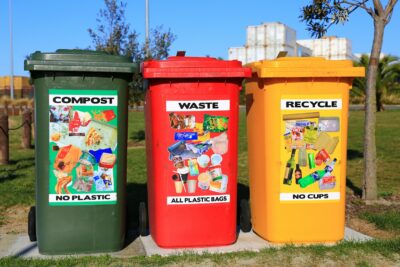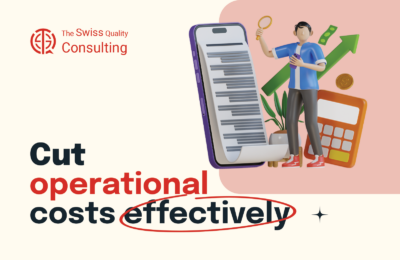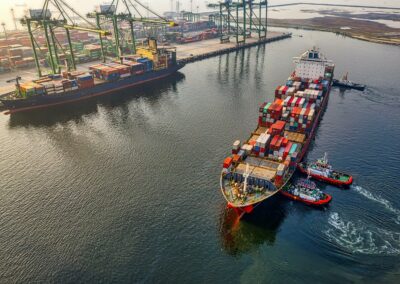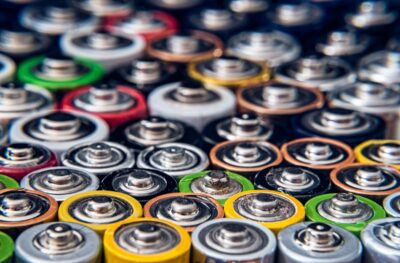Leveraging IoT and Data Analytics for Enhanced Waste Management
The Role of IoT in Waste Collection Optimization
The integration of digital technologies in waste management has revolutionized the industry, particularly through the implementation of the Internet of Things (IoT). In Saudi Arabia and the UAE, smart waste management systems utilize IoT sensors to monitor waste levels in real-time. These sensors, placed in waste bins and collection vehicles, provide crucial data that can be analyzed to optimize collection routes and schedules. This not only reduces the number of unnecessary trips, saving fuel and reducing emissions, but also ensures that bins are collected before they overflow, maintaining a clean and hygienic environment in cities like Riyadh and Dubai.
Moreover, IoT technology enables the tracking of waste collection vehicles, ensuring they adhere to optimal routes and schedules. This level of oversight improves operational efficiency by minimizing delays and maximizing the use of available resources. For business executives and mid-level managers in the waste management sector, adopting IoT can lead to significant cost savings and enhanced service quality. The real-time data generated by these systems supports informed decision-making, enabling proactive maintenance and timely responses to any issues that may arise.
In addition to operational benefits, IoT integration fosters greater transparency and accountability within waste management operations. The data collected can be shared with stakeholders, including municipal authorities and the public, demonstrating a commitment to sustainability and efficient resource management. As cities in the Gulf region continue to grow, the need for smart waste management solutions becomes increasingly critical, positioning IoT as a key enabler of sustainable urban development.
Data Analytics: Transforming Waste Management Services
Data analytics plays a pivotal role in the integration of digital technologies within waste management. By analyzing data from IoT sensors, waste management companies can identify patterns and trends that inform strategic decisions. In the context of Saudi Arabia and the UAE, data analytics can reveal insights into waste generation behaviors, peak collection times, and areas with higher waste production. This information is invaluable for optimizing waste collection routes and schedules, ensuring that resources are allocated efficiently and effectively.
Furthermore, data analytics enables predictive maintenance of waste management infrastructure. By analyzing data on equipment performance and usage, companies can anticipate when maintenance is required, preventing breakdowns and extending the lifespan of assets. This proactive approach reduces downtime and repair costs, contributing to overall operational efficiency. For business leaders, the ability to leverage data analytics for predictive maintenance represents a significant competitive advantage, enhancing service reliability and customer satisfaction.
In addition to operational improvements, data analytics can support the development of targeted waste reduction initiatives. By understanding the types and quantities of waste generated in different areas, municipalities and businesses can implement tailored recycling and waste reduction programs. This not only supports environmental sustainability but also aligns with the growing emphasis on corporate social responsibility in the Gulf region. For entrepreneurs and managers, embracing data-driven waste management strategies can lead to enhanced reputation and business success.
Smart Waste Management: The Future of Sustainable Cities
The future of waste management lies in the continued integration of digital technologies, such as IoT and data analytics, to create smart waste management systems. In cities like Riyadh and Dubai, these systems are becoming increasingly prevalent, driven by the need for efficient and sustainable urban services. Smart waste management involves the use of advanced technologies to monitor, analyze, and optimize every aspect of waste collection and disposal, from bin level sensors to fleet management systems.
One of the key benefits of smart waste management is the ability to enhance operational efficiency. By leveraging real-time data, waste management companies can streamline their operations, reducing fuel consumption and operational costs. This is particularly important in the context of the Gulf region, where rapid urbanization and population growth are placing increasing pressure on waste management infrastructure. For business executives and mid-level managers, the adoption of smart waste management solutions offers a way to stay ahead of these challenges and deliver superior service to their customers.
Additionally, smart waste management systems support environmental sustainability by reducing the carbon footprint of waste collection activities. By optimizing routes and minimizing unnecessary trips, these systems help to lower greenhouse gas emissions, contributing to the broader goal of environmental protection. For leaders in the waste management industry, the integration of digital technologies presents an opportunity to demonstrate a commitment to sustainability and corporate responsibility, enhancing their brand and market position.
Driving Innovation through Public-Private Partnerships
Public-private partnerships (PPPs) are crucial in driving the adoption of digital technologies in waste management. In Saudi Arabia and the UAE, these collaborations leverage the expertise and resources of both sectors to develop and deploy innovative waste management solutions. PPPs can facilitate the integration of IoT and data analytics, ensuring that municipalities have access to the latest technologies and best practices. For business executives, engaging in PPPs can open new opportunities for growth and innovation, while also contributing to the public good.
These partnerships also play a vital role in funding and scaling smart waste management initiatives. Governments in the Gulf region are increasingly recognizing the value of digital technologies in enhancing urban services, and are investing in infrastructure and pilot projects. For entrepreneurs and managers, participating in these initiatives can provide valuable insights and experience, positioning their companies as leaders in the field. By working together, public and private entities can accelerate the transition to smart waste management, delivering tangible benefits for communities and businesses alike.
Moreover, PPPs support knowledge sharing and capacity building within the waste management sector. Through collaborative efforts, companies can learn from each other’s experiences and adopt best practices, driving continuous improvement and innovation. For business leaders, this collaborative approach fosters a culture of excellence and ensures that their operations remain at the forefront of technological advancements. As the Gulf region continues to evolve, PPPs will be instrumental in shaping the future of waste management and ensuring sustainable urban development.
Conclusion: Embracing Digital Transformation in Waste Management
The integration of digital technologies in waste management is transforming the industry, particularly in rapidly developing regions like Saudi Arabia and the UAE. By leveraging IoT and data analytics, waste management companies can optimize their operations, enhance service quality, and support environmental sustainability. For business executives, mid-level managers, and entrepreneurs, adopting these technologies presents a significant opportunity for innovation and growth.
Smart waste management systems, supported by public-private partnerships, are paving the way for more efficient and sustainable urban services. As cities in the Gulf region continue to expand, the need for advanced waste management solutions will only increase. By embracing digital transformation, companies can position themselves as leaders in the industry, delivering value to their customers and contributing to the broader goal of sustainable development.
In conclusion, the integration of digital technologies in waste management is not just a trend, but a necessity for the future. Business leaders must recognize the potential of IoT and data analytics to drive operational efficiency and sustainability. By investing in these technologies and fostering collaborative partnerships, companies can ensure they are well-equipped to meet the challenges and opportunities of the evolving waste management landscape.
—
#IoT #DataAnalytics #WasteManagement #SmartCities #Sustainability #PublicPrivatePartnerships #SaudiArabia #UAE #DigitalTransformation























